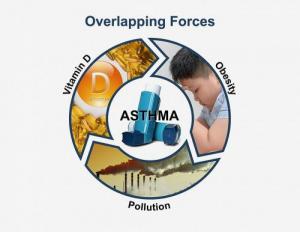Health
WHO unveils sweeping reforms in drive towards “triple billion” targets
WHO announced the most wide-ranging reforms in the Organization’s history to modernize and strengthen the institution to play its role more effectively and efficiently as the world’s leading authority on public health, on March 6.
- Read more
- 298 reads
Lower costs associated with late-preterm steroid therapy, NIH-funded analysis finds
An analysis of a previous study has found more evidence to support giving the steroid betamethasone to pregnant women at risk of late-preterm delivery (between 34 and 36 weeks of gestation). Hospital stays for infants whose mothers received the drug cost less on average, compared to stays for infants whose mothers did not take the drug.
- Read more
- 285 reads
WHO launches new global influenza strategy
WHO released a Global Influenza Strategy for 2019-2030 aimed at protecting people in all countries from the threat of influenza. The goal of the strategy is to prevent seasonal influenza, control the spread of influenza from animals to humans, and prepare for the next influenza pandemic.
- Read more
- 295 reads
NIH study shows many preteens screen positive for suicide risk during ER visits
A research team found nearly one-third of youth ages 10 to 12 years screened positive for suicide risk in emergency department settings. As part of a larger study on youth suicide risk screening in emergency departments, researchers at the National Institute of Mental Health (NIMH), part of the National Institutes of Health, and collaborators sought to explore how frequently preteen youth ages 10 to 12 screened positive for suicide risk. Notably, 7 percent of the preteens who screened positive for suicide risk were seeking help for physical – not psychiatric – concerns.
- Read more
- 296 reads
NIH-funded rodent study finds molecular link between adolescent alcohol use and adult anxiety
New preclinical research in rats has identified a link between adolescent alcohol exposure and specific molecular changes in the brain that contribute to increased anxiety in adulthood. A large body of evidence demonstrates a strong relationship between alcohol and anxiety problems in humans.
- Read more
- 341 reads
Ebola response in Democratic Republic of the Congo risks slowdown
WHO Director-General Dr Tedros Adhanom Ghebreyesus called on donors to continue funding the response to the Ebola outbreak in the Democratic Republic of the Congo or risk backsliding, on February 26. There is an urgent need for US $148 million for all partners involved in the response to continue their work. So far, under US $10 million has been pledged.
- Read more
- 287 reads
Vitamin D may protect against pollution-associated asthma symptoms in obese children

- Read more
- 273 reads
Researchers report high rate of viral suppression among people new to HIV care
Eighty-six percent of individuals who entered HIV care soon after diagnosis maintained viral suppression after 48 weeks during a clinical trial conducted at four National Institutes of Health-funded Centers for AIDS Research (CFARs) across the United States. Participants in the clinical trial, called iENGAGE, achieved viral suppression in an average of just 63 days. The findings were presented in Seattle.
- Read more
- 339 reads
Tuberculosis diagnosis in people with HIV increases risk of death within 10 years

Dr. Samuel Pierre examines a patient at the GHESKIO clinic in Port-au-Prince, Haiti.
- Read more
- 353 reads
Countries are spending more on health, but people are still paying too much out of their own pockets
Spending on health is growing faster than the rest of the global economy, accounting for 10% of global gross domestic product (GDP). A new report on global health expenditure from the World Health Organization (WHO) reveals a swift upward trajectory of global health spending, which is particularly noticeable in low- and middle-income countries where health spending is growing on average 6% annually compared with 4% in high-income countries.
- Read more
- 353 reads
Human Rights
Fostering a More Humane World: The 28th Eurasian Economic Summi

Conscience, Hope, and Action: Keys to Global Peace and Sustainability

Ringing FOWPAL’s Peace Bell for the World:Nobel Peace Prize Laureates’ Visions and Actions

Protecting the World’s Cultural Diversity for a Sustainable Future

Puppet Show I International Friendship Day 2020

